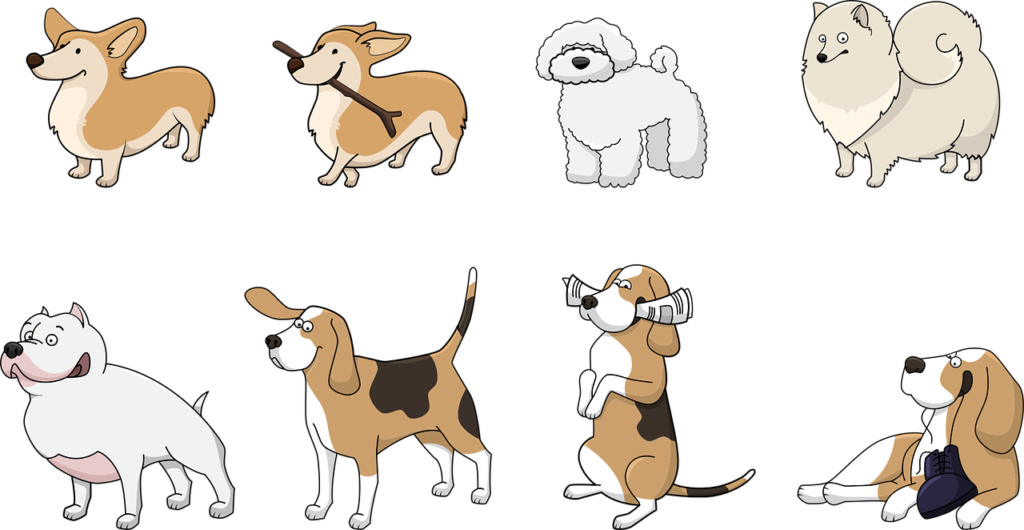
10 Common Causes of Vomiting and Diarrhea in Dogs
As a dog owner, seeing your furry friend suffer from vomiting and diarrhea can be alarming. These symptoms may appear suddenly and can result from various underlying causes, some more serious than others. Understanding the common reasons behind vomiting and diarrhea can help you determine when it’s time to take action and seek veterinary care. Here are ten common causes of vomiting and diarrhea in dogs:
1. Dietary Indiscretion
Dogs are curious creatures, and they often eat things they shouldn’t. If your dog consumes something outside their normal diet, such as spoiled food, garbage, or non-food items, it can lead to upset stomachs, vomiting, and diarrhea. This is one of the most common causes and can resolve with some basic care.
Treatment: Monitor your dog and ensure they don’t have access to harmful substances. If symptoms persist for more than 24 hours, consult your vet.
2. Food Allergies or Sensitivities
Just like humans, dogs can develop allergies or sensitivities to certain ingredients in their food. Common culprits include beef, chicken, dairy, grains, or artificial additives. When your dog consumes something they are allergic to, it can lead to gastrointestinal upset, including vomiting and diarrhea.
Treatment: Switch to a hypoallergenic or limited-ingredient diet, and discuss food sensitivities with your vet.
3. Infections (Viral, Bacterial, or Parasitic)
Infections caused by bacteria (like Salmonella), viruses (such as parvovirus or distemper), or parasites (like giardia or roundworms) can cause vomiting and diarrhea in dogs. These infections can be serious and may require veterinary intervention.
Treatment: A vet may recommend medications to treat the infection, such as antibiotics or anti-parasitic treatments.
4. Sudden Diet Change
Abruptly changing your dog’s food, especially if it’s from one brand or formula to another, can upset their digestive system. Dogs’ stomachs can be sensitive to new foods, and this can lead to vomiting and diarrhea.
Treatment: Gradually transition your dog to new food over 7-10 days to allow their digestive system to adjust.
5. Toxins or Poisons
Dogs are naturally curious and may ingest toxic substances such as household cleaners, plants (like lilies or poinsettias), or human foods (chocolate, grapes, raisins). Poison ingestion can lead to severe vomiting, diarrhea, and even organ damage.
Treatment: Contact your vet immediately or call an emergency pet poison hotline. Quick intervention is crucial in these cases.
6. Stress or Anxiety
Stress and anxiety can affect your dog’s digestive system. Situations like a change in environment, traveling, separation anxiety, or new people or pets in the home can cause gastrointestinal upset, resulting in vomiting and diarrhea.
Treatment: Try to minimize stressful situations, provide comfort and routine, and consult a vet if anxiety persists. Medication or behavior modification may be necessary.
7. Inflammatory Bowel Disease (IBD)
IBD is a chronic condition in which your dog’s digestive tract becomes inflamed, leading to symptoms like vomiting, diarrhea, and weight loss. It can be a long-term issue that requires careful management.
Treatment: Your vet may recommend dietary changes, medications to reduce inflammation, and regular check-ups to manage the condition.
8. Pancreatitis
Pancreatitis, which is the inflammation of the pancreas, can lead to vomiting, diarrhea, and abdominal pain. It’s often caused by a high-fat diet or ingestion of fatty foods and can be a serious condition.
Treatment: Your vet will likely recommend a special diet and possibly medications to manage the inflammation and pain.
9. Gastric Torsion (Bloat)
Bloat is a potentially life-threatening condition in which the stomach twists, trapping gas and fluid. This condition often leads to vomiting, diarrhea, and signs of severe distress like bloating, restlessness, and lethargy.
Treatment: Immediate emergency care is required to treat gastric torsion. Surgery is often necessary to correct the twist and relieve the pressure.
10. Cancer or Tumors
In some cases, vomiting and diarrhea can be signs of more serious conditions, such as gastrointestinal tumors or cancer. This is often accompanied by other symptoms like weight loss, lethargy, and a decreased appetite.
Treatment: Diagnosis and treatment depend on the type and location of the cancer. Your vet will conduct tests, such as X-rays, ultrasounds, or biopsies, to determine the best course of action.
Conclusion
Vomiting and diarrhea in dogs can occur for many different reasons, ranging from mild to serious health concerns. If your dog experiences these symptoms, it’s important to observe their overall condition and duration of symptoms. While mild cases can often be treated at home, prolonged or severe cases, especially those involving blood, lethargy, or dehydration, require prompt veterinary attention. Always consult your vet if you are concerned about your dog’s health to ensure they get the appropriate treatment and care

How to Stop Your Dog from Vomiting
If your dog is vomiting occasionally or after a specific event (such as eating something they shouldn’t), there are steps you can take to help prevent or stop it:
1. Monitor Their Diet
Dietary issues are one of the most common causes of vomiting in dogs. If your dog has eaten something inappropriate, such as garbage or non-food items, it could upset their stomach.
Action Steps:
- Ensure your dog has access to a balanced, high-quality diet appropriate for their age, breed, and health needs.
- Avoid sudden diet changes. If you need to switch their food, do so gradually over 7-10 days.
- Limit your dog’s access to harmful foods, garbage, and non-food items that could cause digestive upset.
2. Feed Smaller, More Frequent Meals
Sometimes, dogs vomit because they eat too quickly or have an empty stomach. This can lead to an upset stomach or even bile-induced vomiting.
Action Steps:
- Feed your dog smaller meals more frequently throughout the day, rather than one large meal.
- Use a slow-feeder bowl if your dog tends to gulp down their food too quickly.
- Wait at least 30 minutes before allowing your dog to exercise after meals.
3. Hydration is Key
Vomiting can lead to dehydration, which can worsen your dog’s condition. After vomiting, it’s important to encourage your dog to drink water and stay hydrated.
Action Steps:
- Provide fresh water at all times and encourage your dog to drink small amounts frequently.
- If your dog refuses to drink, offer ice chips or flavored water (like low-sodium broth) to entice them.
4. Avoid Stress and Anxiety Triggers
Stress can be a significant cause of vomiting in some dogs, especially if they are anxious or nervous about certain situations, such as travel, a visit to the vet, or separation anxiety.
Action Steps:
- Identify potential stressors in your dog’s environment and work to minimize them.
- Use calming aids such as pheromone sprays, anxiety wraps, or calming treats to help your dog feel more relaxed.
- Provide a consistent routine to help reduce anxiety, including regular feeding times and exercise.
5. Limit Access to Toxins
If your dog has ingested something toxic or poisonous, vomiting is often the body’s way of trying to rid itself of the harmful substance.
Action Steps:
- Keep toxic foods (like chocolate, grapes, onions) and plants out of reach.
- Be mindful of household cleaners, chemicals, and medications that can be toxic to dogs.
- If you suspect your dog has ingested something harmful, contact your vet or a pet poison hotline immediately.
6. Consult Your Vet for a Diagnosis
If your dog’s vomiting is persistent, accompanied by other symptoms (like diarrhea, lethargy, or a decrease in appetite), or if your dog has a history of medical issues, it’s crucial to consult your veterinarian.
Action Steps:
- Schedule an appointment with your vet to discuss your dog’s symptoms.
- Be prepared to provide details about your dog’s diet, recent activities, and any changes in their behavior.
- Your vet may recommend tests like blood work, X-rays, or ultrasounds to determine the cause of the vomiting.
7. Medication or Treatment
If vomiting is caused by an infection, underlying health condition, or severe digestive upset, your vet may prescribe medications to treat the issue. For example, anti-nausea medication or antibiotics may be needed to address an infection.
Action Steps:
- Follow your vet’s recommendations and dosage instructions if your dog is prescribed medication.
- Keep a close eye on your dog’s condition and report any changes or worsening symptoms to your vet.
When to Seek Immediate Veterinary Care
While mild vomiting may resolve on its own, certain situations require immediate veterinary attention:
- Vomiting occurs repeatedly or continuously for more than 24 hours.
- Vomiting is accompanied by other symptoms like diarrhea, lethargy, fever, or abdominal pain.
- Your dog has ingested something toxic or poisonous.
- There is blood in your dog’s vomit or stool.
- Your dog is very young, elderly, or has pre-existing health conditions that may complicate their recovery.
Conclusion
Vomiting in dogs can have many causes, from minor dietary indiscretions to more serious health conditions. Understanding why your dog is vomiting and taking the appropriate steps to treat or prevent it can help ensure their long-term health and well-being. If your dog’s vomiting persists or is accompanied by other concerning symptoms, don’t hesitate to consult your vet for a thorough evaluation. With the right care and attention, most dogs will recover quickly and be back to their playful selves in no time.
10 Food Options That May Be Beneficial If Your Dog Is Experiencing Vomiting and Diarrhea
1.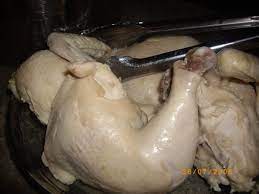
- Boiled chicken is an excellent option for dogs experiencing stomach upset. It’s easy to digest and gentle on the stomach. Boil boneless, skinless chicken breasts and shred the meat into small pieces. This can be added to your dog’s regular food or given as a small daily treat. It’s important to remember that if your dog’s stomach upset persists, it’s best to consult your veterinarian to rule out any underlying health issues.
2.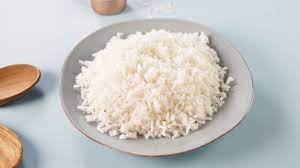
- Boiled Rice can be an excellent solution for a dog’s upset stomach. It’s easy to digest and can help soothe their tummy. To prepare it, boil a pot of water and add white rice. Cook it for about 20 minutes or until it’s tender. Be sure to let it cool down before giving it to your pup. Cook the rice thoroughly and serve it to your dog in small portions throughout the day. Avoid adding seasonings or oils, as this can further irritate their stomach. Keep an eye on your furry friend’s appetite and bowel movements. If their symptoms persist or worsen, it’s best to seek guidance from a veterinarian.
3. 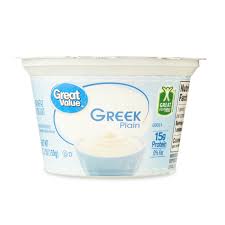
- Plain yogurt can be a safe and effective way to help alleviate your dog’s stomach upset. However, it’s essential to remember that not all dogs can handle dairy products well. So, it’s best to start with a small amount and observe how your dog reacts. To determine the right amount of yogurt to give your pooch, a general rule is to provide them with a tablespoon of plain, unsweetened yogurt for every ten pounds of their body weight. You can gradually increase the amount, but if your dog’s symptoms persist or worsen, it’s crucial to consult your veterinarian. Also, please select yogurt that contains no added sugars or artificial sweeteners because these can harm your dog’s health.
4.
- Pumpkin can be a helpful remedy for this issue, as it is high in fiber and can aid digestion. Try giving your dog a small amount of pureed pumpkin (not pumpkin pie filling) to see if it helps settle their stomach. However, if the stomach upset symptoms persist or worsen, it’s always best to consult a veterinarian for proper diagnosis and treatment.
5.
- Boiled sweet potatoes can be a helpful and nutritious option to feed them. Sweet potatoes are easy to digest and help soothe your dog’s stomach. Please make sure to peel and chop the sweet potato into small pieces before boiling it, and always consult with your veterinarian if your dog’s upset stomach continues or worsens.
6. 
- Bone broth is a great option to help soothe their tummy troubles. The gelatin in bone broth can help coat and protect the digestive tract, while its hydration can also be beneficial. Just make sure to use a plain bone broth without any added spices or ingredients that could further upset your dog’s stomach.
7.
- Cottage cheese is a safe and healthy addition to a dog’s diet if it is in moderation and contains no added sugars or flavorings. It is a good source of protein and calcium and can be mixed in with their regular food for a tasty and nutritious treat. However, it is always essential to consult your veterinarian before significantly changing your dog’s diet.
8.
- Whitefish is a great option for dogs with digestive issues as it is easy to digest and low in fat. You can try steaming or baking the white fish and serving it with a small amount of plain, cooked rice. Be sure to remove any bones before feeding it to your dog. It’s also essential to monitor your dog’s symptoms and consult with your veterinarian if their condition worsens or does not improve.
9.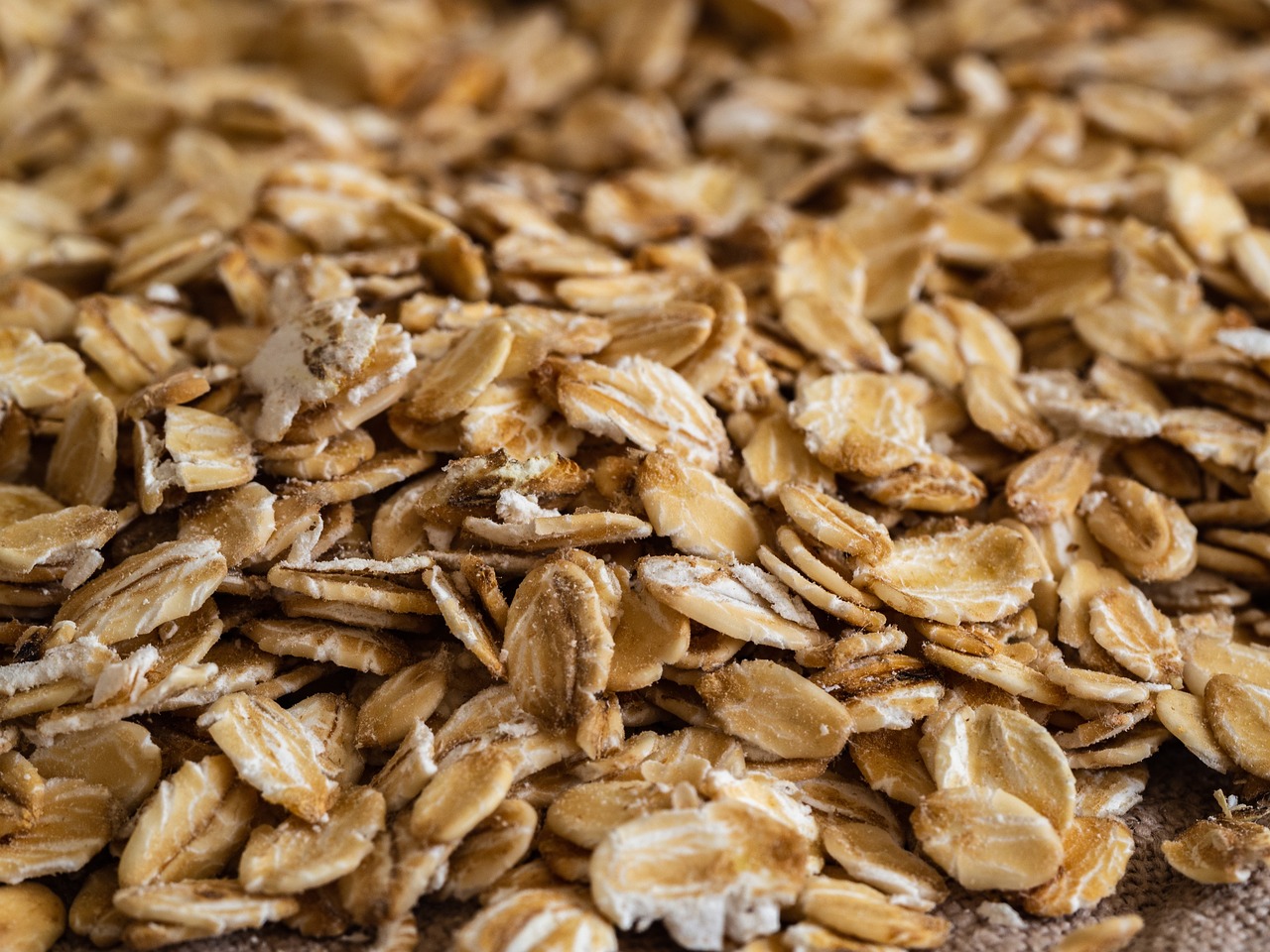
- Oatmeal is an excellent option for dogs with upset stomachs as it is easy to digest and can help soothe their digestive tract. You can feed your dog a small amount of cooked plain oatmeal mixed with boiled chicken or ground beef. Avoid adding any seasonings or toppings that could further upset their stomach. Additionally, they provide plenty of fresh water and monitor their symptoms closely. If their symptoms persist or worsen, it’s best to contact your veterinarian for further advice.
10.
- Boiled potatoes can be a great source of relief for dogs experiencing stomach upset. Ensuring the potatoes are cooked plain without adding seasoning or ingredients that may harm your dog is essential. Also, please consult a veterinarian before introducing any new foods into your dog’s diet, especially if your dog has an underlying medical condition or is taking medication.
